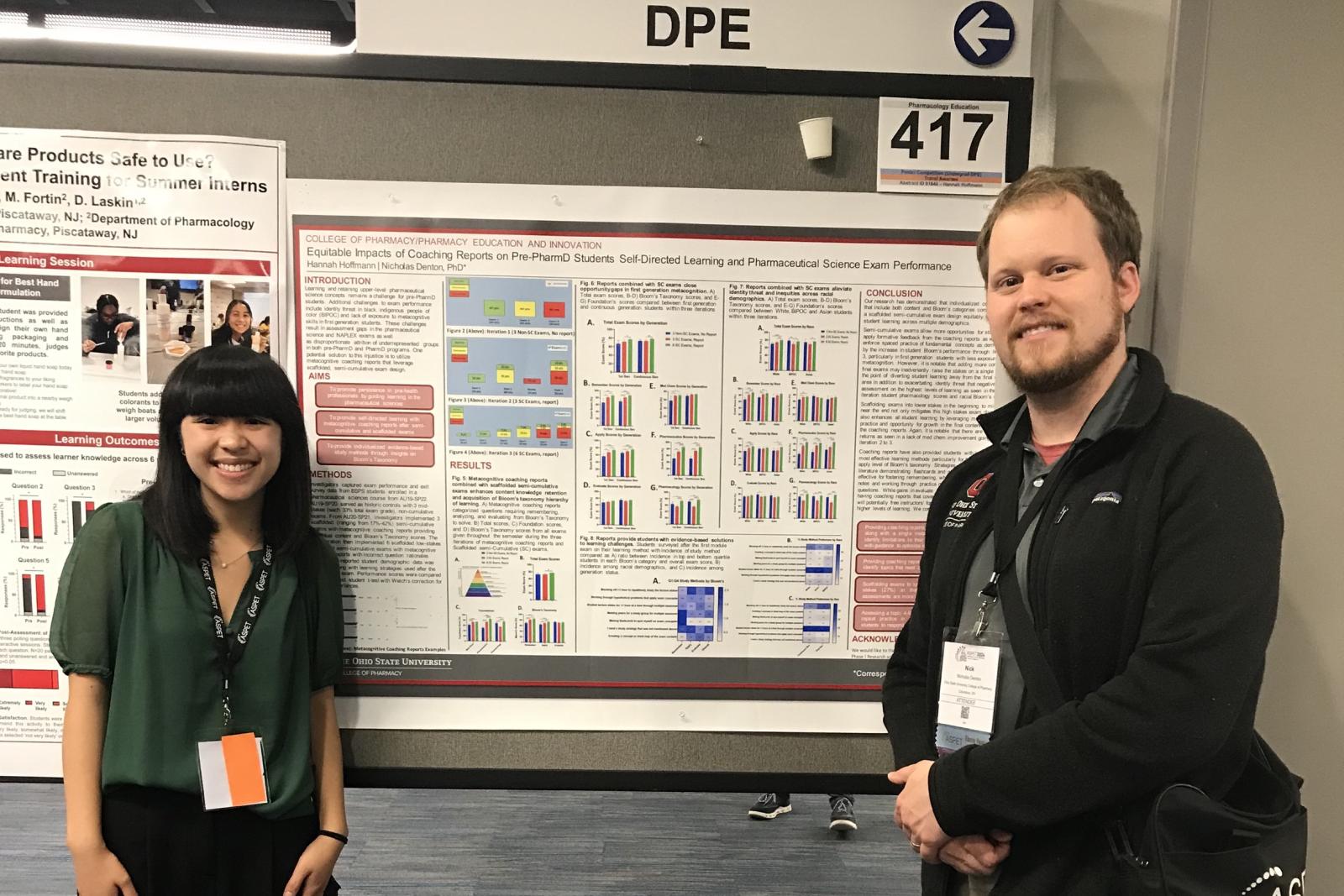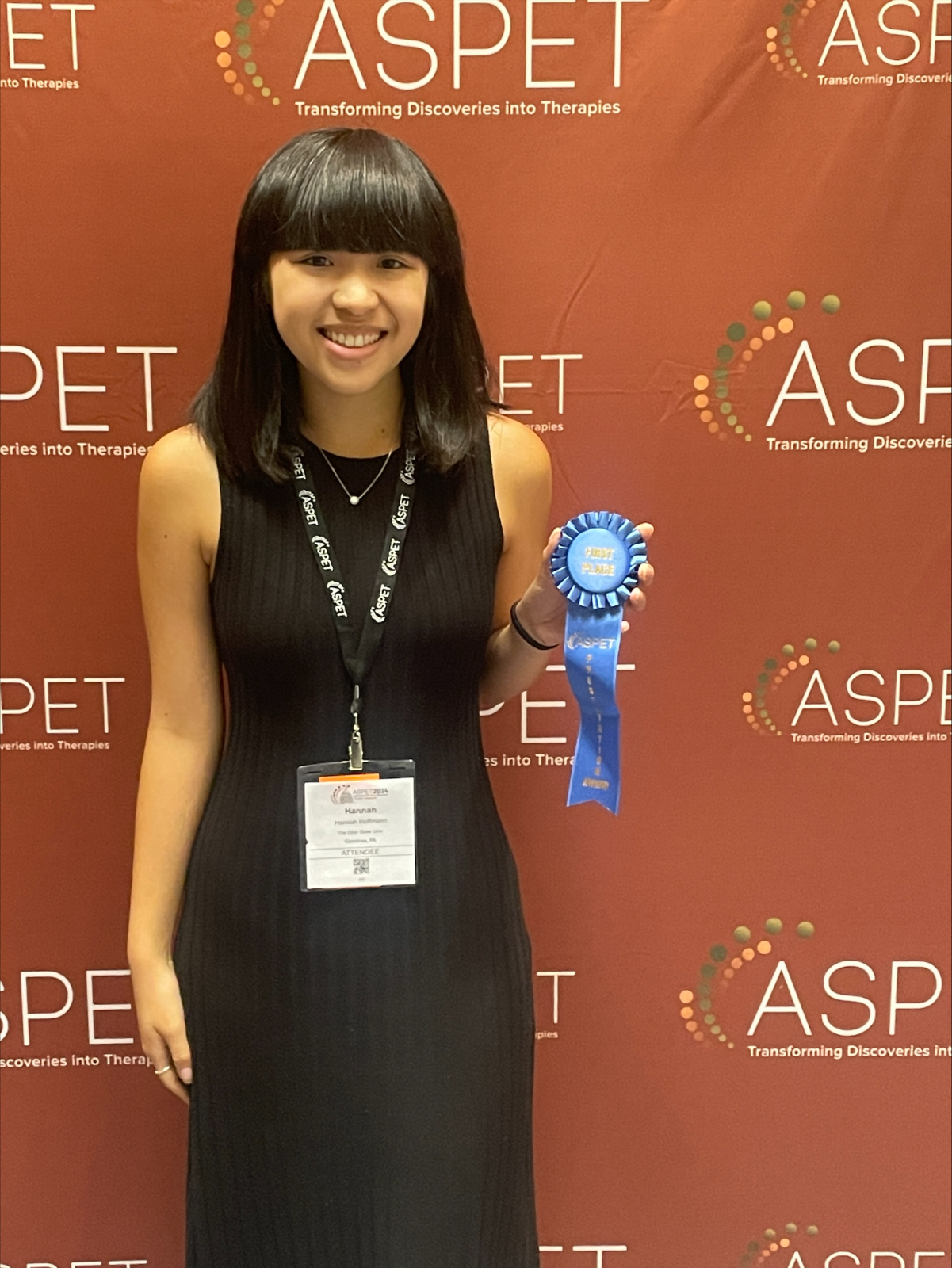Kwiek Scholar seeks to improve health care access by closing education achievement gaps

To first-year PharmD candidate Hannah Hoffmann, quality of care begins with education.
“The health care professionals we see out in the working world are shaped by what their educational experiences were,” Hoffmann said. “That’s why it’s incredibly important to have diverse and inclusive environments for students to feel welcomed in their educational spaces.”
Hoffmann was recently selected as the inaugural recipient of the Nicole C. Kwiek Scholarship for Health Sciences Outreach & Education in recognition of her dedication to health sciences education and accessible health care resources.
For the past two years, the Kwiek Scholar has worked with Senior Lecturer Nicholas Denton, PhD, to investigate why certain groups are underrepresented in the STEM majors and how educational tools and programming can prevent those groups from falling through the cracks.

“Since my start as a BSPS student, I had an interest in improving health outcomes for underserved communities,” Hoffmann recalled. “But with issues as big as public health care disparities, education plays a huge role in creating long-term solutions. Dr. Denton’s posting for student researchers drew me in because it focused on education research and closing achievement gaps for students in the health sciences before they become providers.”
Their research team employed exam reports and exit surveys to understand where students enrolled in The Ohio State University College of Pharmacy were hitting obstacles. Results indicated that pitfalls for students of underrepresented groups could be addressed with study coaching and additional tools provided by instructors.
Supported by Dr. Denton, Hoffmann presented their findings at the American Society for Pharmacology and Experimental Therapeutics (ASPET) Annual Meeting in June.
“Hannah started with plenty of analytical talent, but she developed her research design and presentation skills,” Dr. Denton said. “It was very exciting to see her grow comfortable presenting her research and taking part in conversations around advancing pharmacy practice and outreach with the research and pharmacy community.”
Going beyond the research team’s focus, Hoffmann worked with her collaborators to develop research literacy workshops for her peers.
While she is taking a step back from this research project as her PharmD journey begins, Hoffmann is hopeful to stick with her passion for medication education work. Instead of focusing on health science students however, she may be journeying into the world of patient education.
“As a pharmacist, I’m interested in how I can demystify the health care process with patients and help them to feel in control of their health care journey,” Hoffmann said. “As an undergraduate pharmacy technician, I had plenty of interactions where patients were unfamiliar with their medications and care because they just hadn’t been given the proper tools.”
While her four years in the PharmD program may eventually circle back to research, Hoffmann’s mentors are confident that she will continue to improve the state of medication education for her community.
“Hannah generously offers up her time and perspective as a student, educator and pharmacist toward conversation around advancing health care education,” Dr. Denton said. “You can immediately see her passion for the topic shine through. Few educators and pharmacists can match Hannah’s eagerness to engage in both sides of health care education.”